Mariah Carey: US singer's application to trademark 'Queen of Christmas' denied
- Published
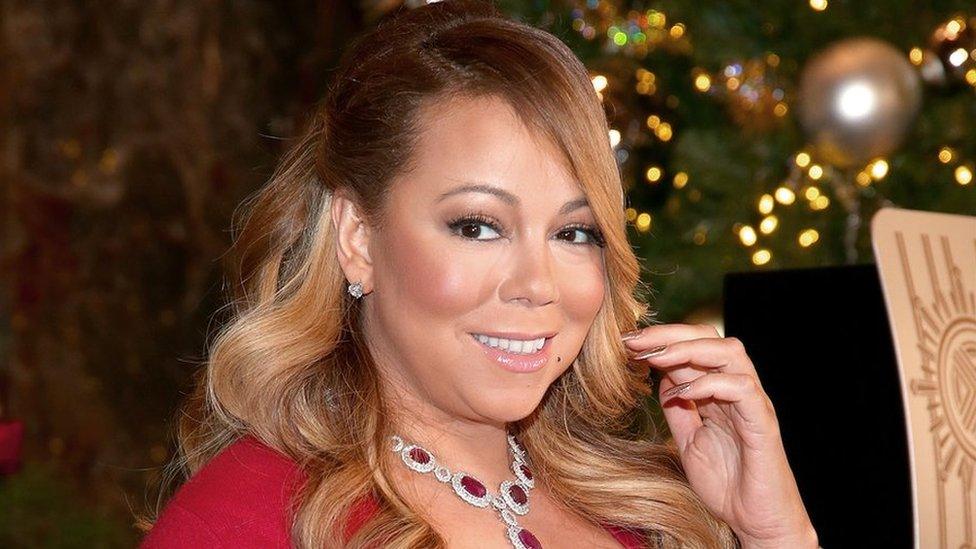
Mariah Carey's 1994 track All I Want for Christmas Is You topped the UK singles chart in 2020
Mariah Carey's application to trademark the moniker "Queen of Christmas" has been denied by the US Patent and Trademark Office., external
The American star's application was rejected after her company did not respond to another singer's opposition.
The trademark would have given her the legal right to stop others from using the title on music and merchandise.
Carey also failed in attempts to trademark the abbreviation "QOC " and "Princess Christmas".
The star has become synonymous with the festive period since the release of her 1994 track, All I Want for Christmas Is You.
Completing a journey 26 years in the making, the ubiquitous festive classic finally reached number one in the UK singles chart in 2020.
Carey's company Lotion LLC applied for the yuletide trademark last year, leading to another singer, Elizabeth Chan, putting in a legal challenge in August, in an attempt to block her from obtaining the registration.
'Monetise Christmas'
Chan - dubbed "Queen of Christmas" by The New Yorker in 2018, for having put out original festive records every year for a decade - criticised Carey for attempting to monetise Christmas.
"I feel very strongly that no one person should hold onto anything around Christmas or monopolise it in the way that Mariah seeks to in perpetuity," said Chan in an interview with Variety, external in August.
"That's just not the right thing to do. Christmas is for everyone. It's meant to be shared; it's not meant to be owned."
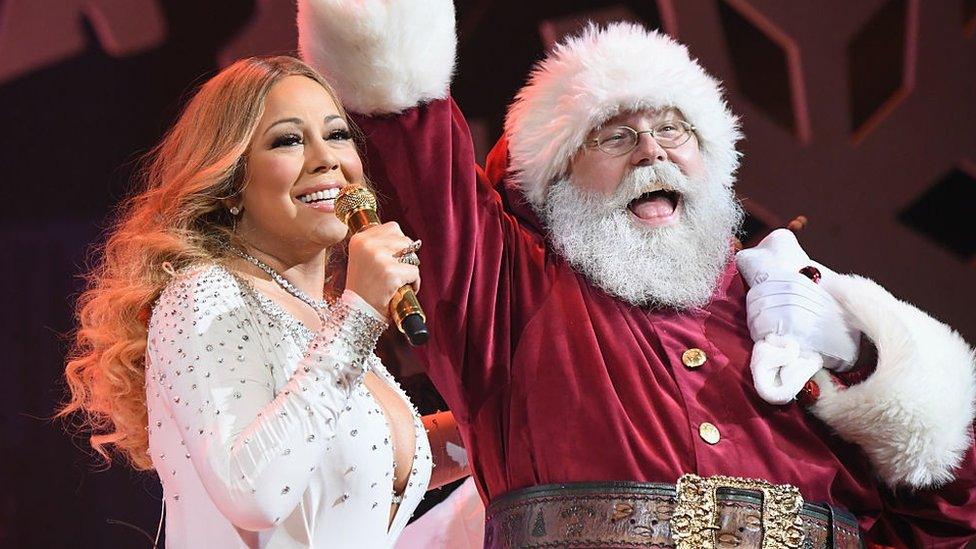
Her Christmas hit has been streamed more than a billion times on Spotify
Chan went on to say Carey had been "trying to trademark this in every imaginable way" from music, clothing and alcohol, to "masks, dog collars - it's all over the map".
"If you knit a 'Queen of Christmas' sweater, you should be able to sell it on Etsy to somebody else so they can buy it for their grandma," she went on. "It's crazy - it would have that breadth of registration."
Carey's company did not respond to Chan's opposition in time so the trademark was not granted, meaning knitters around the world can continue without fear of breaching Christmas copyright.
The BBC has asked Carey's team for a comment.
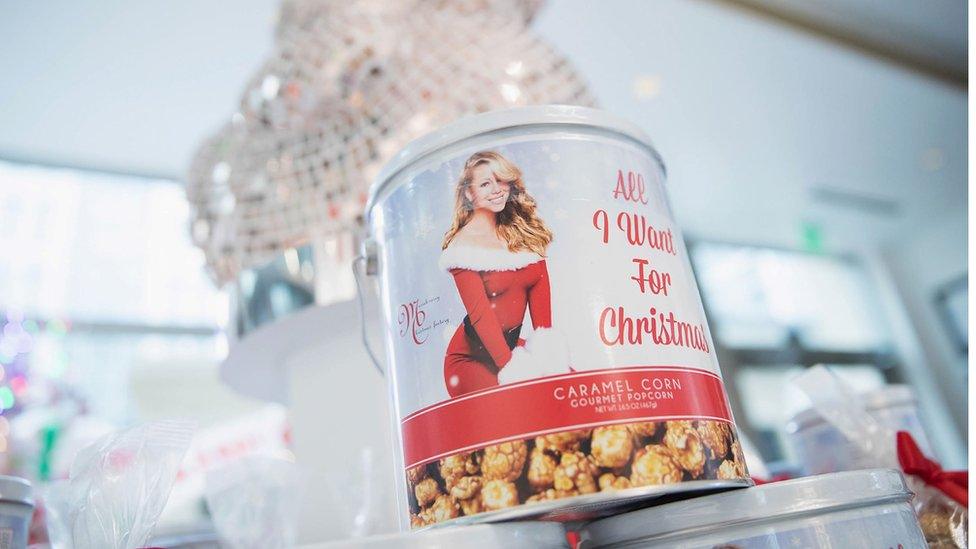
Carey has a range of Christmas merchandise
Another singer, Darlene Love, previously took to Facebook to say she had been "Queen of Christmas" since before Carey rose to fame.
Love is known for her Christmas classic Christmas (Baby Please Come Home) and covers of hits such as Winter Wonderland and White Christmas.
Earlier this month, it transpired that Carey was no longer being sued for copyright infringement over her own Christmas hit, after country singer Andy Stone dropped his legal action.
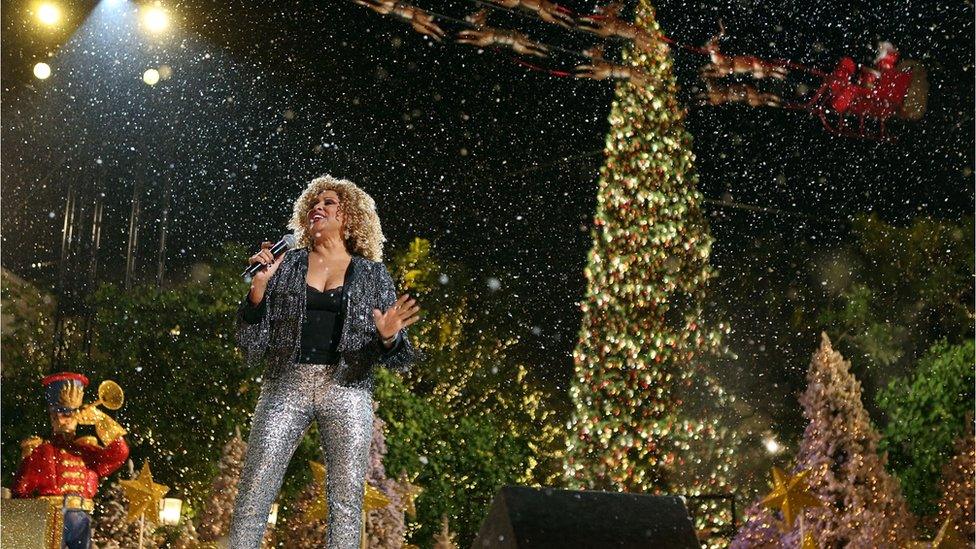
Darlene Love also sang the song All Alone on Christmas, which featured on the Home Alone 2 soundtrack
The songwriter - who performs under the name Vince Vance with the band Vince Vance and the Valiants - sued the popstar in June, claiming he co-wrote a song with the same name five years earlier.
He told a court he would dismiss the case - but legally he could still refile it.
Christmas came early for Carey last week, when Netflix treated her to a special early screening of series five of The Crown at her home as a reward for being the show's "ultimate superfan".
Related topics
- Published2 November 2022
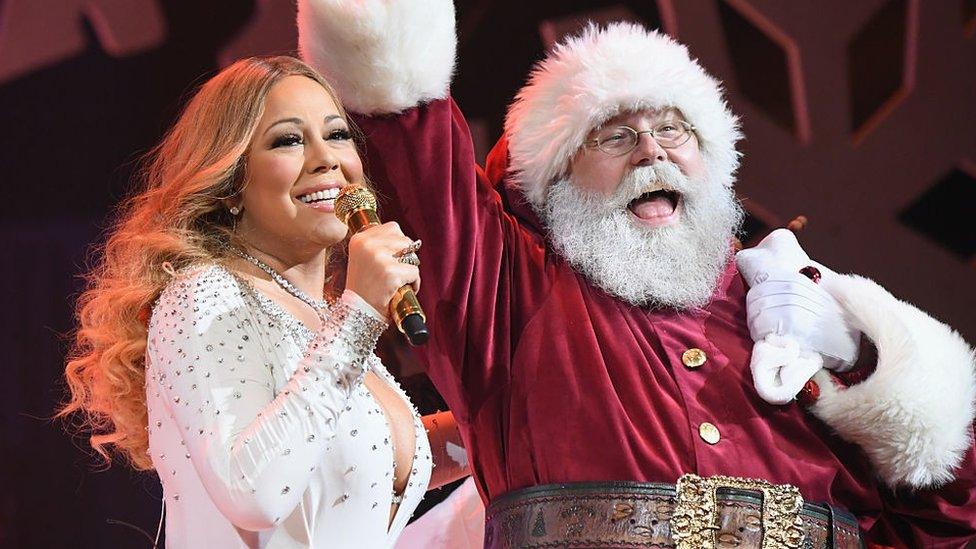
- Published16 August 2022
